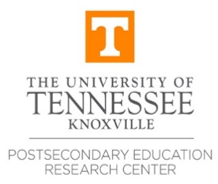Community college students throughout Tennessee are taking fewer classes, avoiding certain majors, and not purchasing required materials due to their cost, according to the 2019 Tennessee Community College Student Course Materials Survey Report released by The University of Tennessee, Knoxville, Postsecondary Education Research Center (PERC). This survey, the first to specifically survey Tennessee community college students’ experiences, illustrates the impact that high course material costs have on students’ academic decisions and ability to progress toward graduation.

Elizabeth Spica
“The state of Tennessee is a national frontrunner in resolving barriers related to the cost of tuition, but the issues students experience due to the oftentimes high cost of course materials indicate that simply enrolling students is not enough,” said Elizabeth Spica, Principal Researcher working in partnership with the University of Tennessee, Knoxville, Postsecondary Education Research Center. “We not only want students to enroll, but also to succeed and earn the degrees and credentials that will help them be more successful in life. The negative points of impact evident in this research report indicate we have more work to do.”
The report results could help inform educational leaders and policymakers further develop recommendations and initiatives for increasing the affordability of required course materials and, as a result, the overall affordability of college. According to the report students spent an average of $119.18 per course on required materials in the Fall 2019 semester, and while they relied most heavily on campus bookstores, they also frequently turned to online services like Amazon and Chegg to purchase and rent materials.
“It is our hope that this report will help illuminate the struggles that students face related to the unanticipated costs incurred after enrolling in a postsecondary program,” said Spica. “Course material costs represent a great proportion of the investment beyond tuition, and by addressing this challenge, Tennessee will pave the way for students to more easily realize the opportunities that come with successful completion of a higher education degree.”
In a partnership with the University of Tennessee, Knoxville, Postsecondary Education Research Center, the Tennessee Board of Regents Office of Policy and Strategy, and Offices of Institutional Research at 12 participating community college campuses, the 2019 Tennessee Community College Student Course Materials Survey was completed by almost 2,000 students across the state, half of which intended to transfer to a four-year institution upon completion of their current program. The survey asked students about their spending, purchase behaviors, and points of impact for course material costs on academic decisions and their ability to progress to graduation. The survey also addressed the extent to which required materials were being used in the classroom.
Download the Press Release by clicking here, and for additional information and a full copy of the report, visit perc.utk.edu/reports/.
 About PERC: The mission of the University of Tennessee, Knoxville, Postsecondary Education Research Center (PERC) is to identify, conduct, and coordinate research on initiatives and ideas designed to enhance higher education at the institutional, state, and national levels to enhance policy and practice.
About PERC: The mission of the University of Tennessee, Knoxville, Postsecondary Education Research Center (PERC) is to identify, conduct, and coordinate research on initiatives and ideas designed to enhance higher education at the institutional, state, and national levels to enhance policy and practice.
